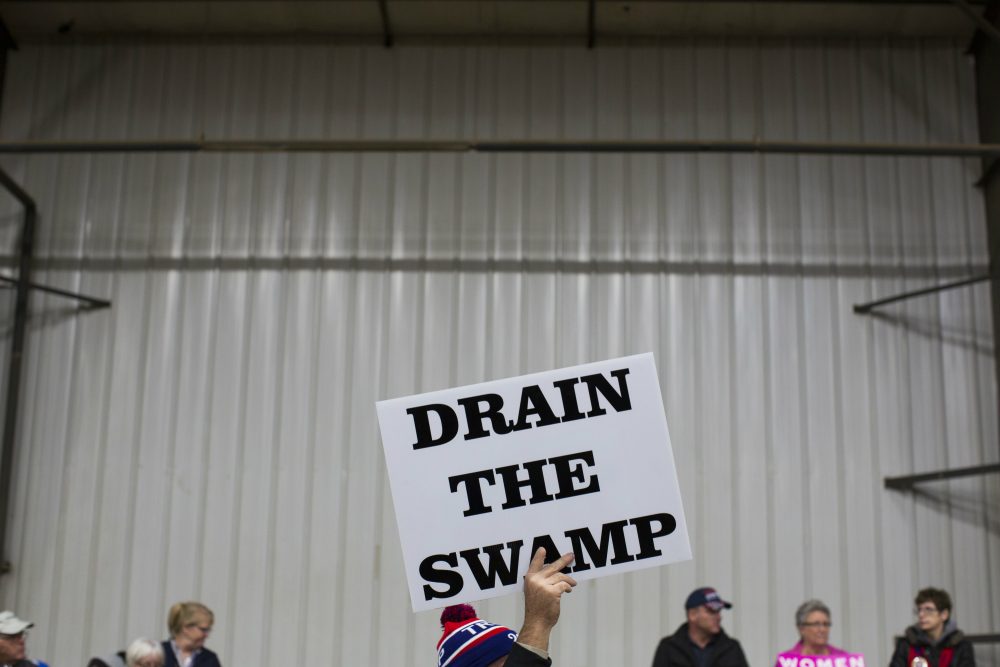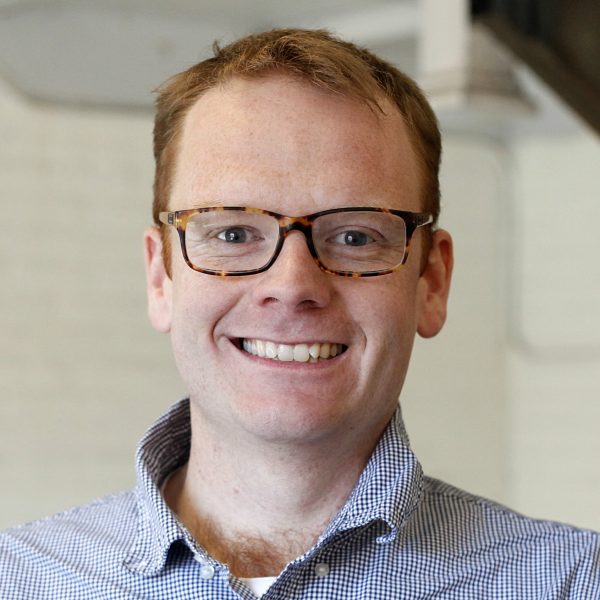Advertisement
Trying To Understand My Old Friend, A Trump Voter Back Home

COMMENTARY
Alma, Missouri, is a wide spot in the road about an hour east of Kansas City. Just three-tenths of a mile across, with a population of around 400, it's my hometown. Alma sits in Lafayette County, where there are 53 people per square mile. Ninety-four percent of them are white. In Cambridge, Massachusetts, where I live now, there are 16,470 people per square mile, and 66 percent of them are white.
I’ve been under no illusions that anyone but Donald Trump would carry Alma. According to the principal of my old elementary school (who also happens to be my mother), Trump beat Clinton in the Trinity Lutheran straw poll 73-16. Gary Johnson got four votes.
According to the principal of my old elementary school (who also happens to be my mother), Trump beat Clinton in the Trinity Lutheran straw poll 73-16.
I knew that rural Missouri was Trumpland, but I hadn’t worried overly much about it. I shared the confidence of most mainstream media outlets and my East Coast neighbors that sanity would prevail.
Folks in Trumpland figured Clinton would win, too.
“I feel like if you really thought Donald Trump was going to win, you were living on a different planet,” my old friend Jarrod Opfer told me when I called him a week after Trump's win.
Jarrod and I are both in our late thirties. His railroad job as a manager with Union Pacific took him all over the upper Midwest: Wisconsin, North Dakota, Nebraska. After a massive layoff a couple of years ago, Jarrod returned with his wife and two children to our hometown and to farming.
Jarrod voted for Barack Obama in 2008. He's not sure he would have done so again in 2012, when, in the middle of a move to North Platte, Nebraska, he didn't vote. Jarrod also thinks pot should be legal, and he’s not against abortion, though he doesn’t think it should be performed “in the very final stages” of a woman's pregnancy.
A diabetic, Jarrod appreciated the Obamacare provision that allowed him to get coverage in spite of his pre-excisting condition. He's not an Obamacare fan, however — it's too expensive, he says, the options are too limited, and the sign-up process too onerous. But he's not against it, exactly, either. He'd like to see it streamlined and to see dental and vision added. Jarrod would even be game for a a single-payer system. As he sees it, that could mean another “$20,000 in my back pocket. I could buy another four-wheeler.”
Advertisement
Yet, on Nov. 8, Jarrod voted for Trump, who campaigned on a promise to repeal the Affordable Care Act.
While I’d spent much of post-election week compulsively reading dispatches about Trump's win, Jarrod had not paid much attention to the transition stories. He’d cast his vote and gone back to the fields.
But I had to know: Why Trump?
“It’s different,” Jarrod said. “It’s something different. We know what we’re gonna get with Hillary. I don’t think anybody’s dumb enough to think that Donald Trump is a good choice for President. And it’s sad to say, but it’s the novelty of what the guy can do.”
I asked Jarrod if he understood that Trump's election has some people scared. Yes, he said, but, “We are sheltered here. …In Alma, they’re sheltered from gays, they’re sheltered from blacks, they’re sheltered from Mexicans. Not that they don’t care about it, but they don’t care about it.”
Jarrod knows the reputation of the Trump voter.
“The racists, the bigots, the misogynists,” he said. “We’re tired of being called that. They’re fed up. They’re just fed up.”
“Jarrod," I said, "do you not see the bulls--- artist I see?”
“I’d be blind if I didn’t,” he said. “But… I think they’re all buddies. Three or four years ago, Donald Trump was a Democrat.”
In other words, Jarrod is not afraid that Trump will install a kleptocratic oligarchy; he just assumes the president-elect will join the one that already exists.
For Jarrod, the Supreme Court was “...a big deal in this election. We wanted a Republican to appoint somebody to the Court.”
'[Trump is] kind of like a stray bullet, to be honest with you,' Jarrod said. 'And that’s silly. It’s silly to think that we just bet on a stray bullet.'
As far as he’s concerned, though, Roe v. Wade is settled, and so is marriage equality. What matters most to Jarrod is securing the Second Amendment. In the wake of the Orlando nightclub shooting, Jarrod and I had exchanged some testy but civil messages about gun control.
“[Trump is] kind of like a stray bullet, to be honest with you,” Jarrod said. “And that’s silly. It’s silly to think that we just bet on a stray bullet. But hell, maybe it’ll hit the mark.”
In the comparatively empty space of the rural Midwest, a stray bullet has a good chance of falling harmlessly to earth. In Cambridge, the best outcome of a stray bullet is a broken window. The worst is that it hits one of my kids.
I have trouble conjuring the potential positive outcome of a stray bullet.
